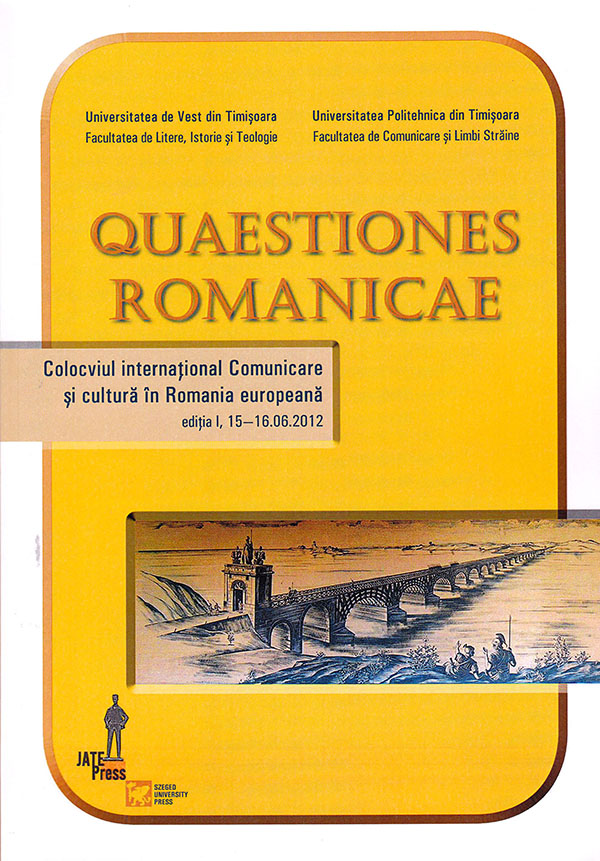Lenguas y culturas romances en las novelas de Enrique Vila-Matas
Abstract: (Romance Languages and Cultures in the Novels of EnriqueVila-Matas) In his novels, the contemporary writer Enrique Vila-Matas depicts the Romance space and with this end he uses a rhetoric means called multilinguism of the speech. Therefore we have phrases or sentences in French, Portuguese, and Italian. Moreover, in some of his novels he makes reference to the reality of the countries where these languages are spoken and he even mentions a topic fromRomania. For example, Bartleby y compañía's linguistic mosaic is completely justified, since the literature of No manifests itself everywhere, and there are quotes in French, Portuguese, Italian and even Latin and also Catalan. In conclusion, these linguistic leaps mark an obvious relationship that the Spanish writer establishes between the Romance cultures and languages, and it's our intention to analyse his own manner of reframing the union between all these.
Keywords: Enrique Vila-Matas, rhetoric means, general rhetoric analysis, morphological licences, multilinguist speech, Romania.
Resumen: En sus novelas, el escritor barcelonés contemporáneo Enrique Vila-Matas bosqueja el espacio románico, y emplea con este propósito un recurso retórico llamado plurilingüísmo discursivo. Por tanto, aparecen palabras, frases u oraciones en francés, portugués, italiano. Además, en unas de sus novelas, se refiere a realidades de los países correspondientes a estos idiomas y hasta a un tópico de Rumanía. Por ejemplo, el mosaico lingüístico de Bartleby y compañía se justifica plenamente, ya que la literatura del No se manifiesta por todas partes, y se cita: en francés, portugués, italiano, y hasta en latín, y también, en catalán. En conclusión, estos saltos lingüísticos marcan la relación obvia que el escritor español establece entre las lenguas y las culturas romances, y nuestra intención es de analizar su propio modo de rehacer la unión entre todas éstas.
Palabras clave: Enrique Vila-Matas, recursos retóricos, análisis retórico-general, licencias morfológicas, plurilingüismo discursivo, Romania.
